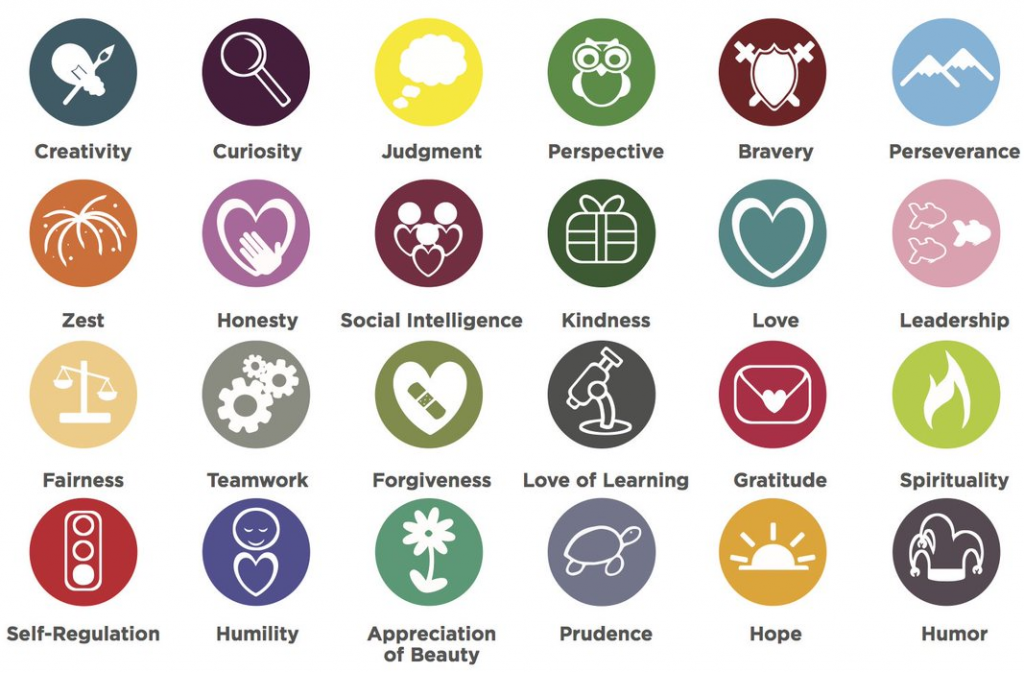The Center for Character and Leadership Development is Vision Group of Institutions most visible focal point for understanding, enhancing and integrating College Students and staff efforts to achieve the essential mission of developing citizens of character.
We earnestly wish to ingrain human values of cooperation, compassion, empathy, fairness and concern in all our students. We focus on developing resilience, grit, persistence, self-control, curiosity, conscientiousness, critical thinking and self-confidence as constituent characteristics of our students; which would ultimately aid them in leading a more fulfilling and satisfied life.
The Classification of Character Strengths and Virtues
Character is the aggregate of who we are; it’s “what’s inside every one of us.”. It is a broad and complex family of thoughts, feelings, and behaviors that are recognized and encouraged across cultures for the values they cultivate in people and society. Dr. Chris Peterson led a 40-person team, over a three-year period, to better understand character and its manifestations. Alongside Dr. Martin Seligman, Dr. Peterson then wrote an 800-page book on the research called Character Strengths and Virtues.
The 6 classes of Character Virtues
There are 6 classes of virtues that are made up of 24 character strengths (Character Strengths and Virtues, Martin Seligman, Christopher Peterson)
- Wisdom and Knowledge
- Courage
- Humanity
- Justice
- Temperance
- Transcendence

The 24 Character Strengths
The 24 character strengths that are evident in the most widely influential traditions of thought in human history. Robust evidence of all 24 strengths existing throughout time and in all cultures of the world. All 24 character strengths exist in every individual.

Ranging from bravery and forgiveness to integrity and gratitude, these character strengths are the foundation of The Positivity Project’s model.
Making students aware that every one of them has all 24 character strengths, provides the foundation for genuine self-confidence grounded in self-awareness. At the same time, it helps students better understand why everyone is different and how to appreciate those differences. Unlike our height, weight, or skin color, character is something that can’t be seen with the naked eye. Therefore, understanding and valuing it — especially in other people — requires a framework of consistent reflection and discussion.
Character strengths aren’t about ignoring the negative. Instead, they help us overcome life’s inevitable adversities. For example, you can’t be brave without first feeling fear; you can’t show perseverance without first wanting to quit; you can’t show self-control without first being tempted to do something you know you shouldn’t.
